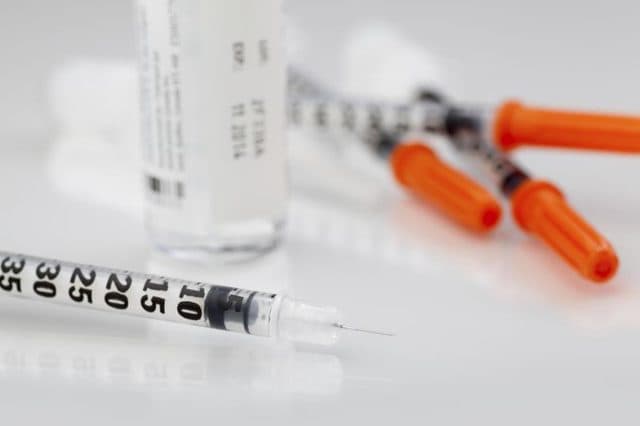Expensive new forms of insulin perform no better than human insulin for Type 2 diabetes

For most people with Type 2 diabetes, treatment begins by making lifestyle changes like diet and exercise and taking medications, such as Metformin, that lower the amount of extra sugar in the blood. But 14 to 25 percent of people with Type 2 diabetes need insulin injections to control their blood sugars.
For decades, these people were prescribed a synthetic form of human insulin, but in the 2000s, newer insulin analogs began to become more widespread. These modified versions of insulin are longer-acting and are supposed to limit the risk of low blood sugars at night. Unfortunately, they are also very expensive, sometimes costing up to 10 times more than the standard human insulin. This caused the overall costs of insulin to triple nationally between 2002 and 2013.
A new study by researchers from Kaiser Permanente, the Yale School of Medicine, and the University of Chicago Medicine published in JAMA (the Journal of the American Medical Association) last week looked at whether these pricey alternatives are worth it. After reviewing the medical records of 25,000 patients with Type 2 diabetes in Kaiser Permanent’s Northern California region over a 10-year period, they found that patients using newer insulin analogs did not have substantially better outcomes than those on older human insulin. Patients on insulin analogs did not have a lower risk of emergency department visits or hospitalization from low blood sugars, nor did they have better blood glucose control.
Elbert Huang, MD, Director of the Center for Chronic Disease Research and Policy at UChicago Medicine and a co-author of the study, said it should influence physicians making treatment decisions for patients with Type 2 diabetes.
When the insulin analogs were first introduced, he said, “they were reported to lower the risk of hypoglycemia, which justified the higher expense. But in the past decade, the prescribing of insulin analogs has skyrocketed and contributed to rising costs of diabetes care.”
He said the study has the potential to make a dent in lowering health care costs.
“It has the potential to shift prescribing back to older human insulin as a way of lowering health care costs, without causing harm to patients,” he said.

Elbert Huang, MD
Elbert Huang, MD, is a professor of medicine and Associate Director of the Chicago Center for Diabetes Translation Research at the University of Chicago
Read more about Dr. Huang
